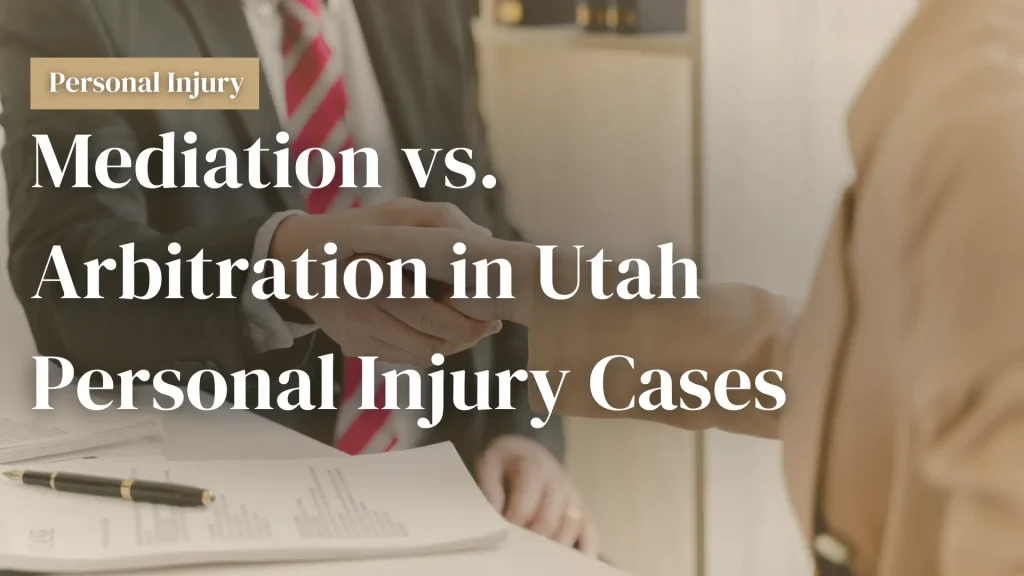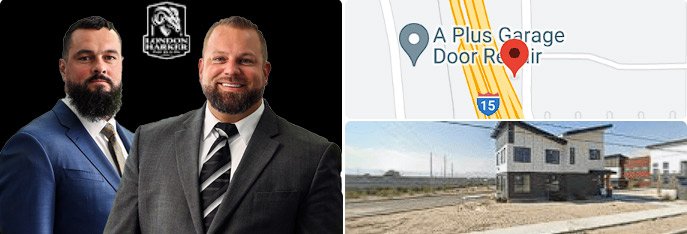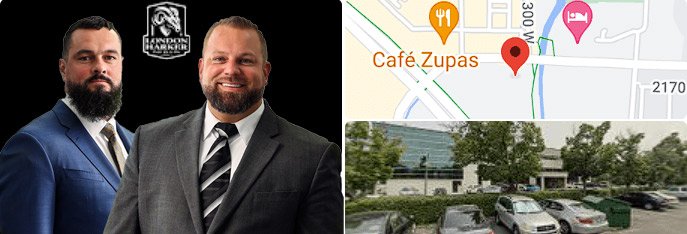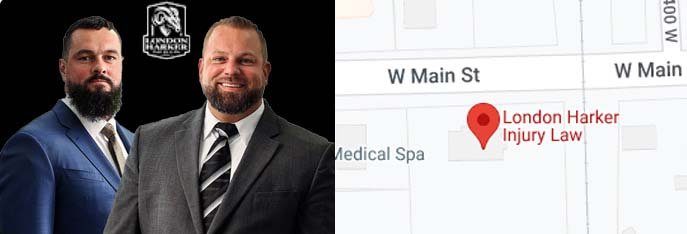Posted on Saturday, March 29th, 2025 at 9:00 am
 Are you interested in seeking compensation for an injury someone else caused you? Are you interested in pursuing a resolution to your case that doesn’t have to go through the formal court system? If so, you might be interested in alternative ways to resolve your dispute. Arbitration and mediation are the two principal methods for doing so. Which one is right for your case, mediation vs arbitration?
Are you interested in seeking compensation for an injury someone else caused you? Are you interested in pursuing a resolution to your case that doesn’t have to go through the formal court system? If so, you might be interested in alternative ways to resolve your dispute. Arbitration and mediation are the two principal methods for doing so. Which one is right for your case, mediation vs arbitration?
Understanding Alternative Dispute Resolutions
Mediation and arbitration are both forms of alternative dispute resolution (ADR). ADR refers to the process of settling legal disputes outside of the traditional courtroom setting. It offers a more efficient and cost-effective solution for parties involved in personal injury cases. ADR methods allow individuals to resolve conflicts with the help of a neutral third party, avoiding the time, expense, and uncertainty of litigation.
Mediation is a collaborative process where a trained mediator facilitates discussions between both parties to reach a mutually acceptable agreement. Arbitration involves a neutral arbitrator who reviews relevant evidence and makes a decision based on their findings. This decision may be either binding or non-binding, depending on the terms of the agreement the arbitrating parties entered into.
In Utah, ADR is often encouraged in personal injury cases as it helps expedite settlements, reduces legal fees, and provides a less adversarial approach to resolving disputes. Ideally, ADR ultimately benefits both plaintiffs and defendants.
What is Mediation?
Mediation is a voluntary and confidential process in which a neutral third party, known as a mediator, helps disputing parties reach a mutually acceptable resolution. Unlike a judge or arbitrator, the mediator does not make decisions or impose outcomes. Rather, they facilitate open communication and negotiation between the parties.
Mediation is particularly beneficial in personal injury cases, as it allows individuals to express their concerns, clarify misunderstandings, and work toward a fair settlement without the stress and expense of a trial. The process is flexible and tailored to the needs of both parties. When performed correctly, it allows all perspectives to be heard and considered, facilitating a mutually acceptable outcome.
In Utah, mediation is commonly used in personal injury cases because it offers a faster and more cost-effective way to resolve disputes. Courts often encourage or even require mediation before proceeding to trial, as they recognize its effectiveness in reaching settlements that satisfy both sides. Just as important, mediation relieves the burden on the courts by allowing for an outside process for resolving disputes.
Mediation can take place in an informal setting, such as an attorney’s office or a mediation center. Crucially, discussions remain confidential, meaning that statements made during the process cannot be used later in court. If both parties agree on a settlement, they put the terms in writing, which becomes legally binding.
By choosing mediation, personal injury claimants can often achieve a fair outcome while avoiding the uncertainty and lengthy delays associated with litigation.
What is Arbitration?
Arbitration is another form of alternative dispute resolution involving a neutral third party, known as an arbitrator. The arbitrator reviews evidence, hears arguments from both sides, and makes a decision to resolve the dispute. Unlike mediation, in which the mediator merely facilitates discussion, arbitration involves a decision from the arbiter, which can be either binding or non-binding, depending on the terms agreed upon beforehand.
Binding arbitration means the decision is final and enforceable, similar to a court judgment. On the other hand, non-binding arbitration allows the parties to accept or reject the outcome. Disputants in personal injury cases may prefer arbitration when they want a quicker resolution than traditional litigation but still require a structured process for presenting their case.
In Utah, arbitration is commonly utilized in personal injury disputes, particularly in cases involving uninsured or underinsured motorist claims. The process is typically less formal than a courtroom trial but still follows a structured procedure, including presenting evidence, witness testimony, and legal arguments. Arbitration can be a more efficient and cost-effective option than litigation, as it eliminates the need for lengthy court proceedings and does not revolve around an overburdened court’s tight schedule.
Additionally, arbitration is usually confidential, preventing sensitive information from becoming part of the public record. Arbitration can be an effective path to justice for personal injury claimants seeking a resolution with more finality than mediation but less expense and time than a full trial.
Key Differences Between Mediation and Arbitration
 Arbitration and mediation are both alternative dispute resolution methods that help parties settle disputes without going to court. However, they also differ significantly in process and outcome.
Arbitration and mediation are both alternative dispute resolution methods that help parties settle disputes without going to court. However, they also differ significantly in process and outcome.
Mediation is a collaborative approach in which a neutral mediator facilitates negotiations between the parties, helping them find common ground and reach a voluntary settlement. The mediator does not impose a decision but instead guides discussions. This encourages both sides to express their concerns and work toward a mutually acceptable resolution. Mediation is ideal for parties who want to maintain control over the outcome and seek a less adversarial, more flexible process that encourages compromise.
Arbitration, on the other hand, is more structured and resembles a simplified court proceeding. A neutral arbitrator listens to both sides, reviews evidence, and ultimately makes a decision on the matter at hand. This decision is either binding or non-binding, depending on the rules the disputants agreed to at the beginning of the process. Unlike mediation, where the parties retain decision-making power, arbitration places the final decision in the hands of the arbitrator.
While both processes are typically faster and more cost-effective than litigation, arbitration provides a more definitive resolution. Conversely, mediation allows for greater flexibility and preserves the possibility of further negotiation. Utah residents use both mediation and arbitration to resolve personal injury cases. The choice between them depends on the parties’ preferences for control, finality, and legal procedure.
Contact London Harker Injury Law for Help with Your Dispute
The Utah personal injury lawyers with London Harker Injury Law are committed to helping our clients resolve their cases as efficiently and satisfactorily as possible. We can review your case to determine the suitability of ADR methods like mediation and arbitration and then represent you accordingly. Contact us today for a free consultation about your dispute. Contact our law firm today at (772) 272-7274 or through our online form.
Related Posts
General vs Special Damages in Personal Injury Cases
Understanding Aggravated Pre-Existing Conditions in Car Accident Claims



